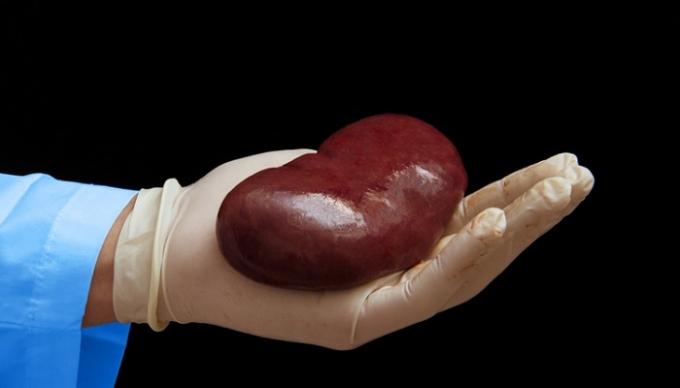When we talk about organ donation, many people think it is necessary to enact the brain death for the donation to be made. However, what many do not know is that the donation of some organs can indeed occur in life.
→ What are the organs that can be donated while alive?
According to the Ministry of Health, the organs that can be donated while alive are kidney, liver, lung and bone marrow. We'll talk a little more about each of these cases below.
donation of kidneys: Human beings have two kidneys, and it is possible to survive with only one. In donation, the donor will give his kidney completely, as, unlike other organs, it is not possible to donate fragments.
donation of liver: The liver, unlike the kidney, can be donated in portions, being possible to donate up to half of the organ. This is possible because the liver has a great capacity for regeneration.

Kidney donation can occur in life
donation of lung: it can also be done in portions, usually being donated from the lower lobe of the organ. However, unlike the liver, this organ does not regenerate, but the removal of a portion does not put the donor's life at risk.
bone marrow donation: Bone marrow is a tissue inside certain bones that contains stem cells responsible for generating blood cells. O transplant it is usually recommended for patients who have diseases that affect the blood, such as leukemia. After the procedure, the marrow donor continues with normal life, and the bone marrow recovers in approximately 15 days. Donors return to their normal activities after about a week.
Read too: Importance of organ and tissue transplantation.
→ What does the law say about living organ donation?
Law No. 9,434, of February 4, 1997, provides for the removal of organs, tissues and parts of the human body for the purposes of transplant and treatment and other arrangements. According to article 9 of this law, “the legally capable person is allowed to dispose of tissues, organs and parts of their own living body free of charge, for therapeutic purposes or for transplants in a spouse or consanguine relatives up to the fourth degree, including, pursuant to § 4 of this article, or in any other person, upon judicial authorization, which is waived in relation to the marrow bone.”
According to the same law, "The donation referred to in this article is only allowed when it is a case of double organs, parts of organs, tissues or parts of the body whose removal does not prevents the donor's body from continuing to live without risk to its integrity and does not represent a serious impairment of its vital abilities and mental health and does not cause unacceptable mutilation or deformation, and corresponds to a therapeutic need proven indispensable to the person recipient.”
It is noteworthy that not all people can be organ donors in life. To be a living donor, a person must present good health (proven by medical examinations) and must agree to the donation. The donation of organs and tissues by pregnant women is also prohibited, except when it is a tissue for bone marrow transplant and this procedure does not pose a risk to their health.
By Ma. Vanessa Sardinha dos Santos
Source: Brazil School - https://brasilescola.uol.com.br/biologia/orgaos-que-podem-ser-doados-vida.htm
